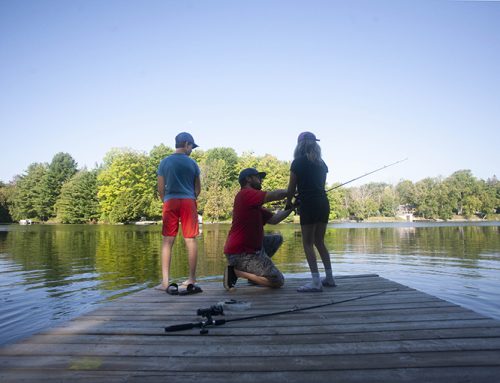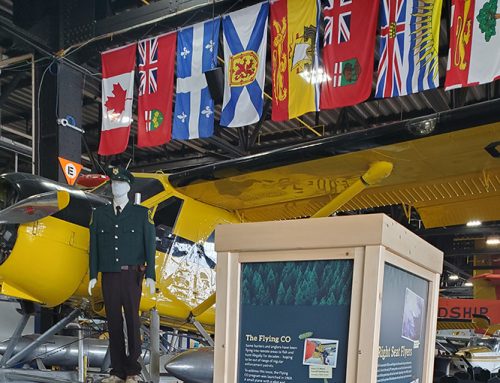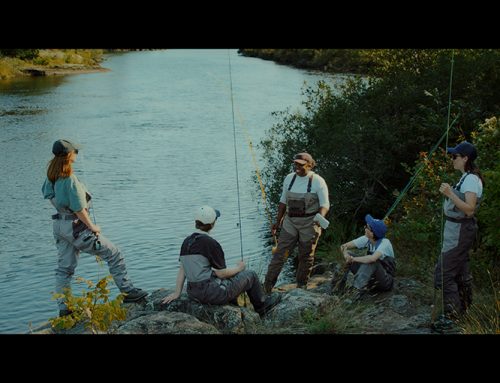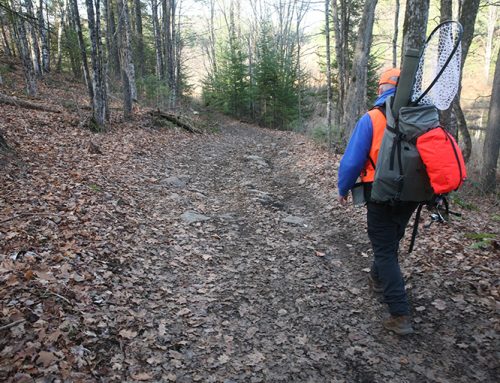
Recurring issues of illegal or poor angling behaviour that include littering, alcohol in public places, and wastage of fish have caused the Municipality of Port Hope to consider implementing night fishing restrictions and a $40 Municipal Access Fishing Pass. The proposals apply to stretches of the Ganaraska River owned by the Municipality or the Ganaraska Region Conservation Authority.
These proposed resolutions will be presented to the Municipality of Port Hope Council on Feb. 21. The report recommends petitioning the Ministry of Natural Resources and Forestry (MNRF) to revise the Ontario Fishing Regulations to “prohibit night fishing on the Ganaraska River from August 15 to September 30, from 8 p.m. to 6 a.m., from the Robertson Street Bridge to the Jocelyn Street Bridge; And further, that By-law 45/2012, being a By-law to regulate, protect and govern the use of Parks, Recreation Areas and Park Facilities be amended to prohibit night fishing on the Ganaraska River from August 15 to September 30, from 8 p.m. to 6 a.m., on all Municipal properties from the Robertson Street Bridge to the Jocelyn Street Bridge…”
Another proposed resolution calls for the creation of a Municipal Access Fishing Pass, for anglers between 18 and 65. It would permit fishing in municipal and Ganaraska Region Conservation Authority properties.
The report containing the recommendations cites poor angler behaviour that includes “snagging, gaffing, and netting of fish, fishing in a sanctuary, harvesting roe, leaving remains to spoil, fishing without a valid license, and keeping more than the daily limits.”
It also asserts that much of this behaviour occurs during the night.
The report notes that the MNRF are not supportive of the Access Fishing Pass as it might restrict access to public fishing and set a precedent for other jurisdictions to follow suit.
Ontario Federation of Anglers and Hunters Fisheries Biologist Tom Brooke said, “We’re aware that there are issues with fishing at Port Hope and that something needs to be done, but we are hoping that the Municipality would consider options that don’t restrict access to the fishery.”
Brooke says public parking fees in the area or the licensing of food vendors who would serve anglers are two possible solutions. These would help the municipality recoup costs (which are reported to be almost $20,000) incurred from running and maintaining their fish cleaning station and porta-potties along the river.
Jim McCormack, Director of Parks, Recreation and Culture for the Municipality of Port Hope said, “We had to do something. We as a Municipality are incurring costs in order to deal with fishing issues. The numbers of anglers are overwhelming, especially on weekends in the fall, and with that comes an overwhelming number of issues.”
McCormack says the Municipality has trained members of the Port Hope Police Services to enforce fisheries regulations and have also introduced a zero-tolerance policy for violations. He says this has helped, but it is costly.
“All the tickets we write for fishing violations go to the province and we are not recovering costs, so these proposals address that and the other issues.”
He says that should the proposals be approved by council, by-laws and processes will still have to be developed. “We want to make this a smooth transition.”
Because of this, should the proposals be approved, McCormack believes the changes will not be in place until autumn 2017.
The Ganaraska River is the most-fished tributary on the north shore of Lake Ontario.
The Municipality is seeking public comment on the issue until February 26. To learn about the issue and comment visit http://www.porthope.ca/community-consultation/salmon-fishing-report.






I really like this idea and I’m happy to see these issues being recognised and addressed. It’s really hard to watch the river being hit so hard and the fish being caught illegal then wasted. It really is sad to see this in my own town and to such a productive fishery.
Great to see lots of C.O. out this year and the port hope police being able to issue tickets!
Keep up the good work
I’m very much in favour of C.O. s monitoring and regulating those who make the bad choices by over harvesting or littering the banks of the river with gutted fish for the sake of spawn. But I’m apposed to to charging a user fee to fish our rivers we already have one it’s called a license. We pay plenty our government is constantly raising the fees on our hunting and fishing licenses. Hunting and fishing is our heritage and many use our take to feed our families. The way in which government hikes up the fees is going to make hunting and fishing a rich man’s sport like golf. With many low earning families having our heritage taken away.
Just saying.
*edited by OOD
I’m against it too, but the City of Port Hope shouldn’t have to pay our way either. Some thugs are ruining this for everyone. There is some kind of weird greed that comes over people when they see large fish in shallow water. Easy to get at, at least by criminal means.
I’ve lawfully fished in Port Hope for 30yrs, I follow all laws and regs, I take it in I take it out. I know many others who travel from SE Ontario and Quebec who do the same. Does Port Hope want to ruin a good thing?